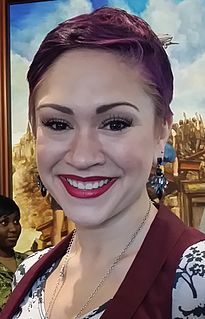A Quote by Leah Busque
Startups need to focus on building a foundation for their company culture early, and then they need to revisit it often. Every time a hire is made, a feature is launched, a Facebook status is updated, a press interview is given, a round of financing is raised, or a meeting is held, culture should be part of the decision-making process.
Related Quotes
Often, entrepreneurs don't build a board until they are forced to by their VCs when they raise their first financing round. This is dumb, as you are missing the opportunity to add at least one person to the team who - as a board member - can help you navigate the early process of building your company and raising that first round.
Most of the time, when you need something at a company, you make it. If you want to sell a product, you create it. If you need a head of marketing, you hire one. If you want to create a great company culture, what do you do? The lack of a clear answer on this is why I believe most companies don't have a great culture.
The reason the social-networking phenomenon is something that I invested in early and massively - I led the Series A financing for Friendster; I founded a company called Socialnet in 1997; I founded LinkedIn; and I was part of the first round of financing in Facebook - it sounds trivial, but people matter.
I’ve always thought that if comics are a part of pop culture [then] they should reflect pop culture, but a lot of the time comics, superhero comics especially, just feed on themselves. For me, comics should take from every bit of pop culture that they can; they’ve got the same DNA as music and film and TV and fashion and all of these things.
In a large pharmaceutical company, where it's a big bet, you're going to need finance people to be involved in the decision-making because the investment can run into the hundreds of millions of dollars. You're going to have to run scenarios. You might even need agreement from the C.E.O. to make that type of decision. If it's an incremental, low-cost decision in a marketing-oriented company, it may be a very different set of stakeholders a lot further down in the organization.
Equality is not a concept. It's not something we should be striving for. It's a necessity. Equality is like gravity, we need it to stand on this earth as men and women, and the misogyny that is in every culture is not a true part of the human condition. It is life out of balance and that imbalance is sucking something out of the soul of every man and woman who's confronted with it. We need Equality, and we kind of need it now. 'So why do you write these strong female characters?' Because you're still asking that question.


































